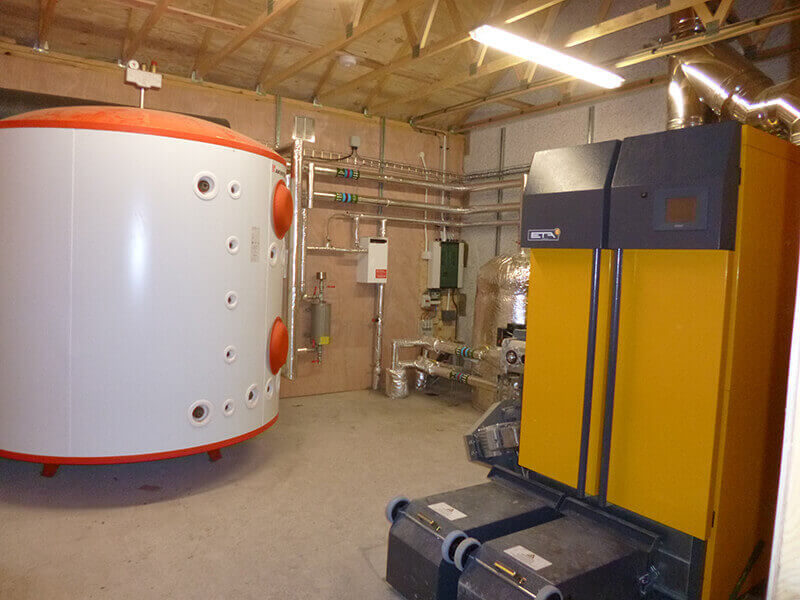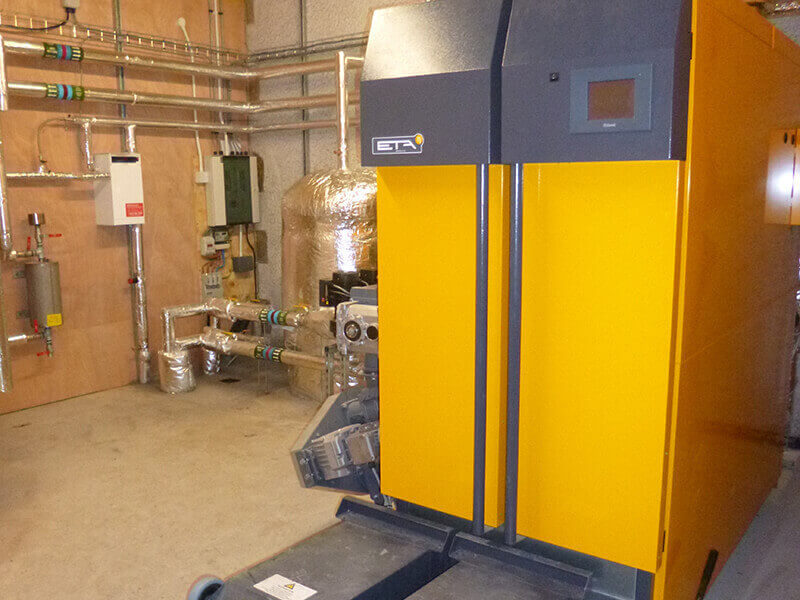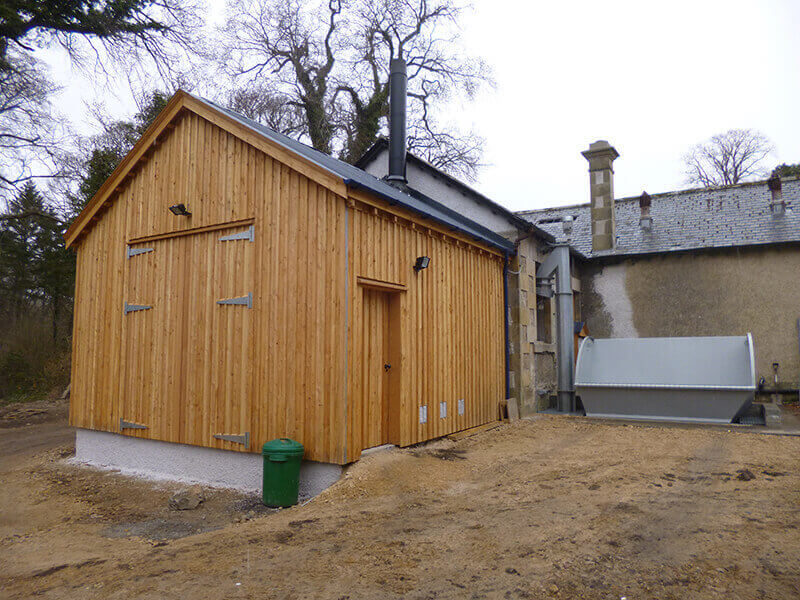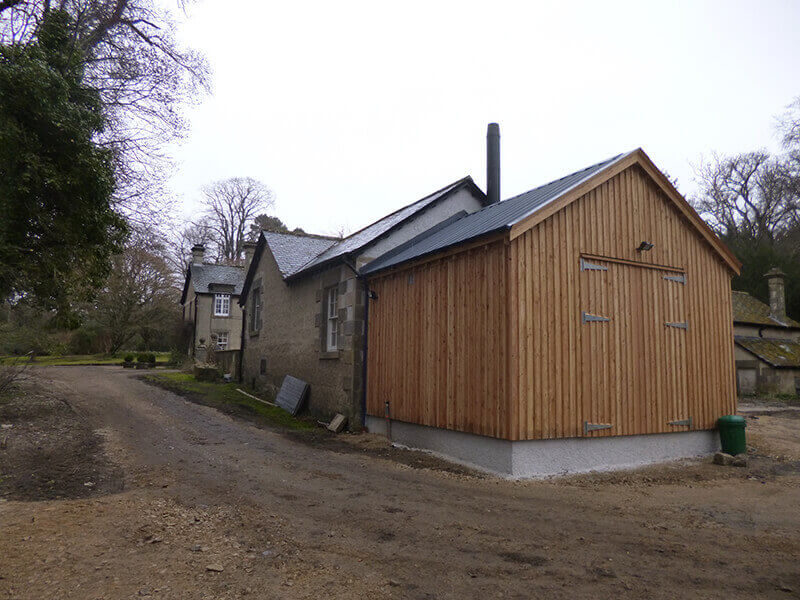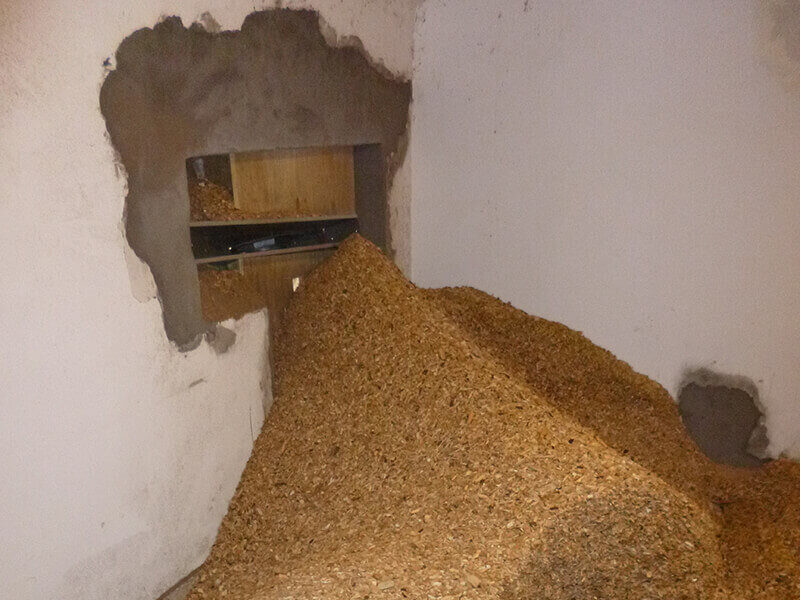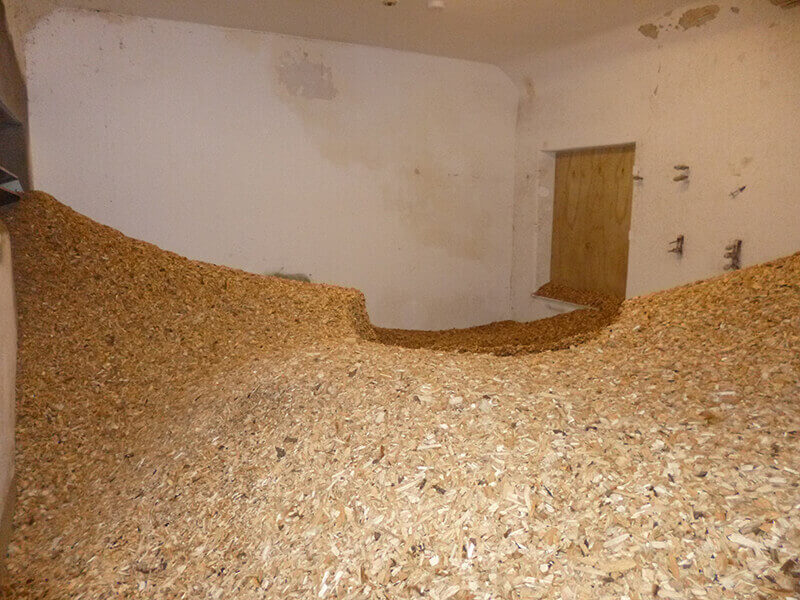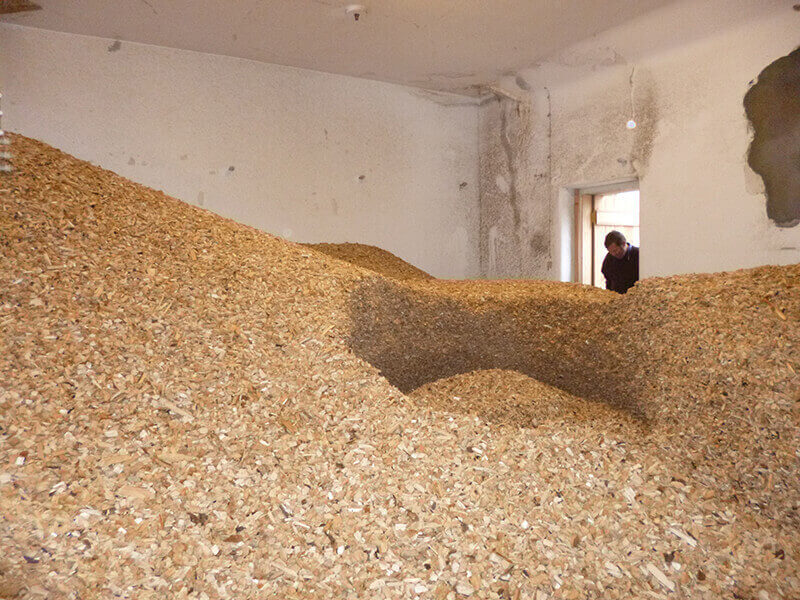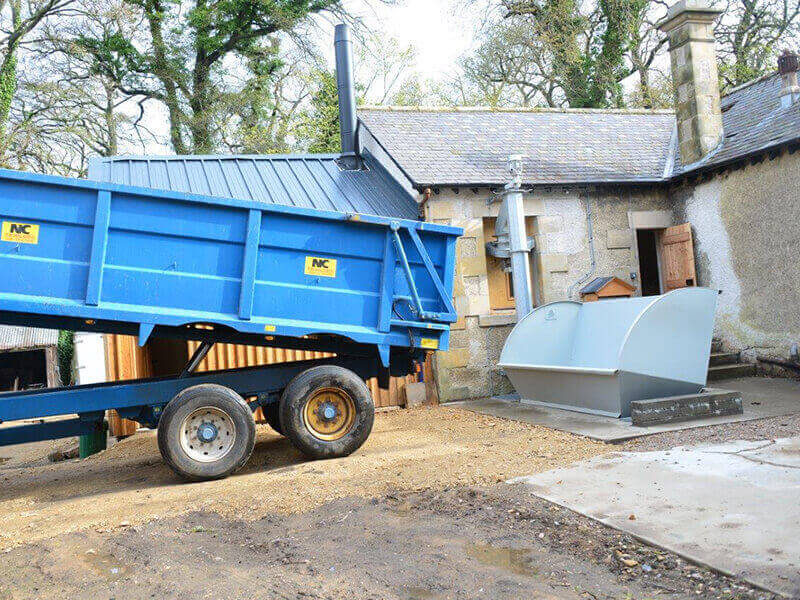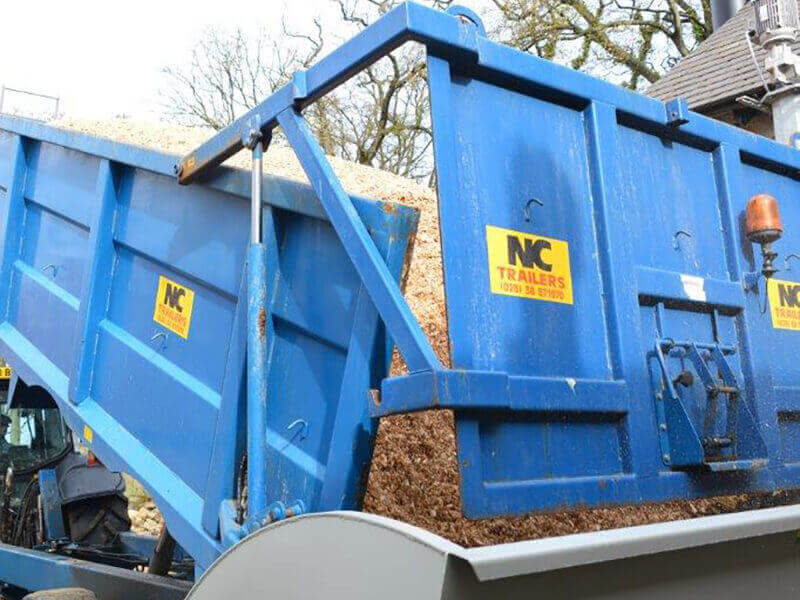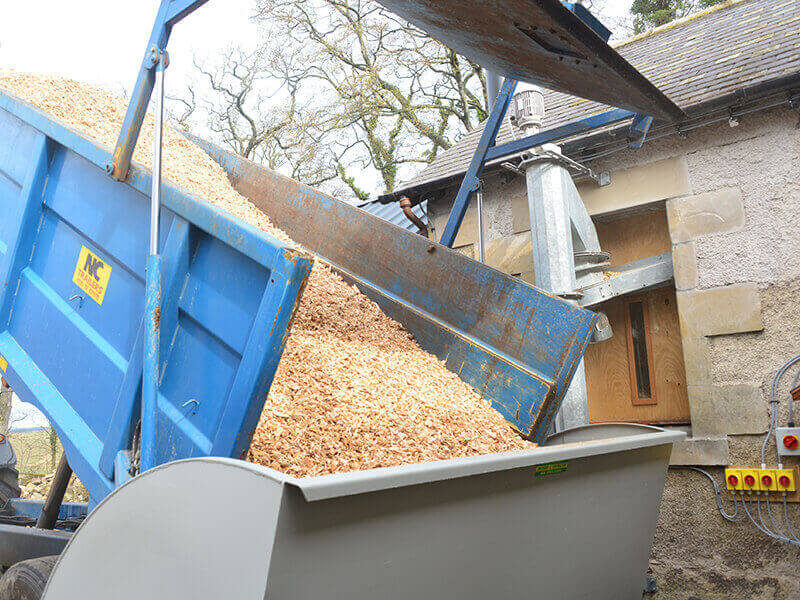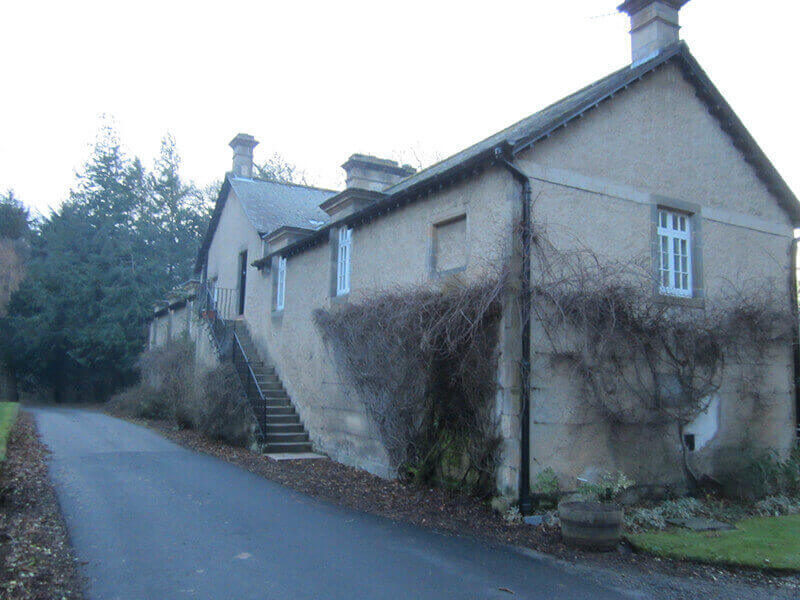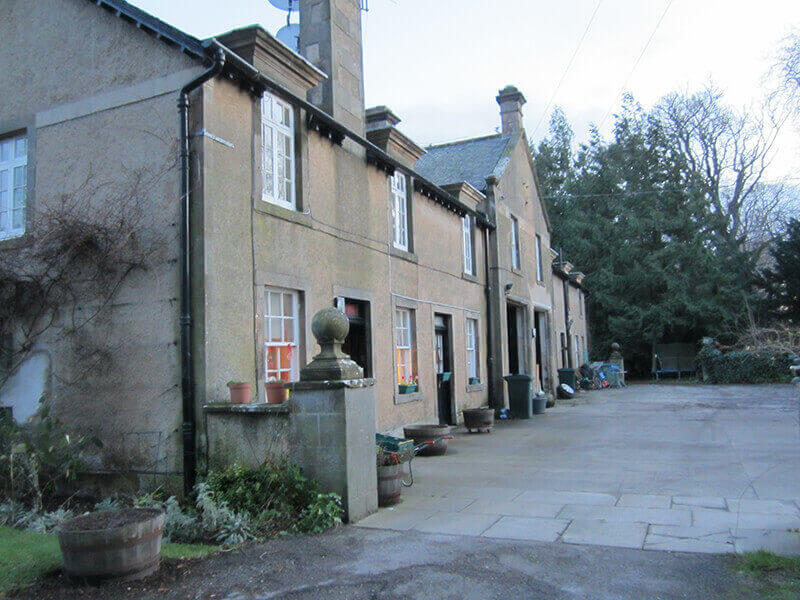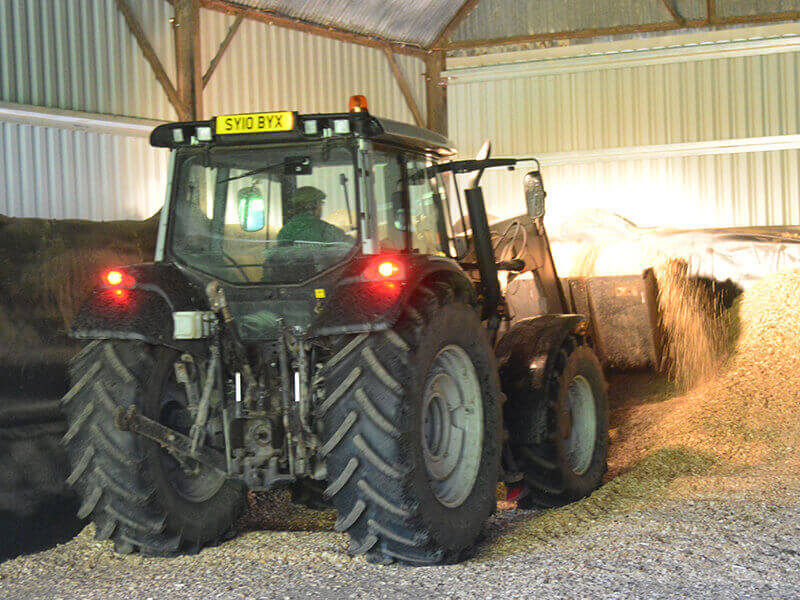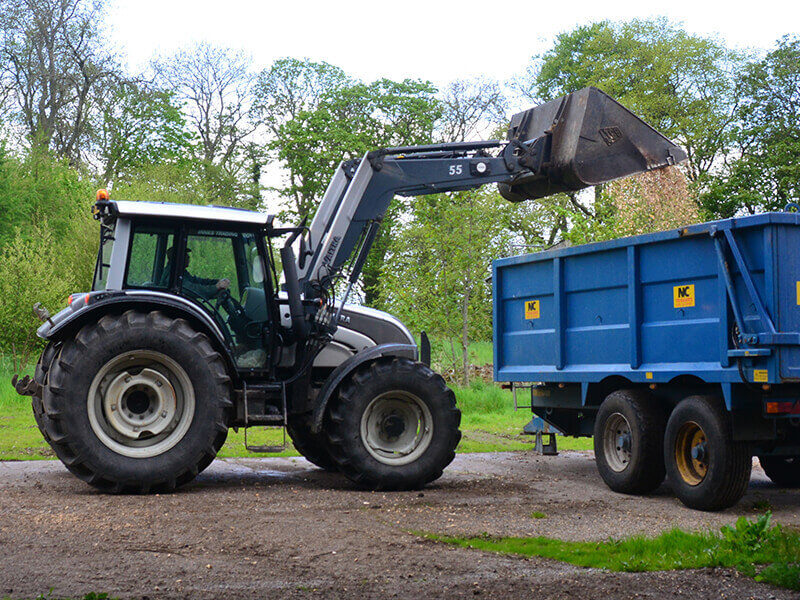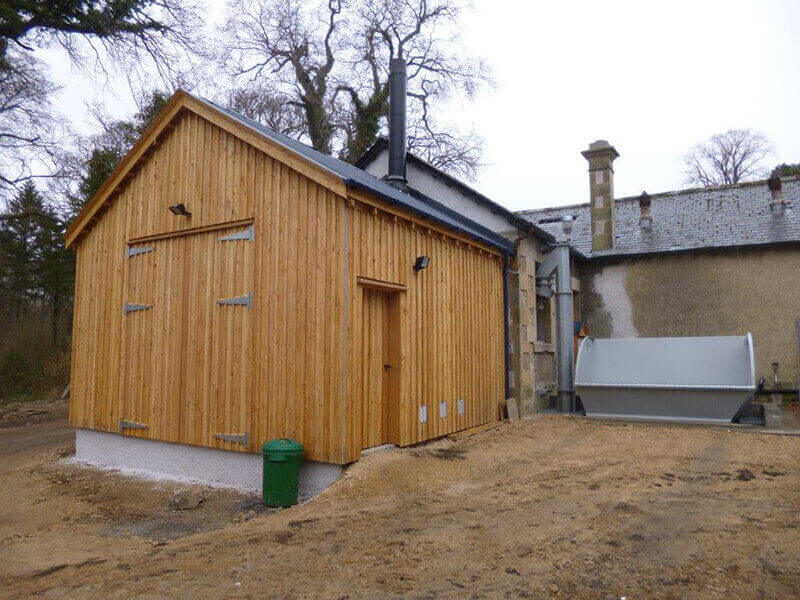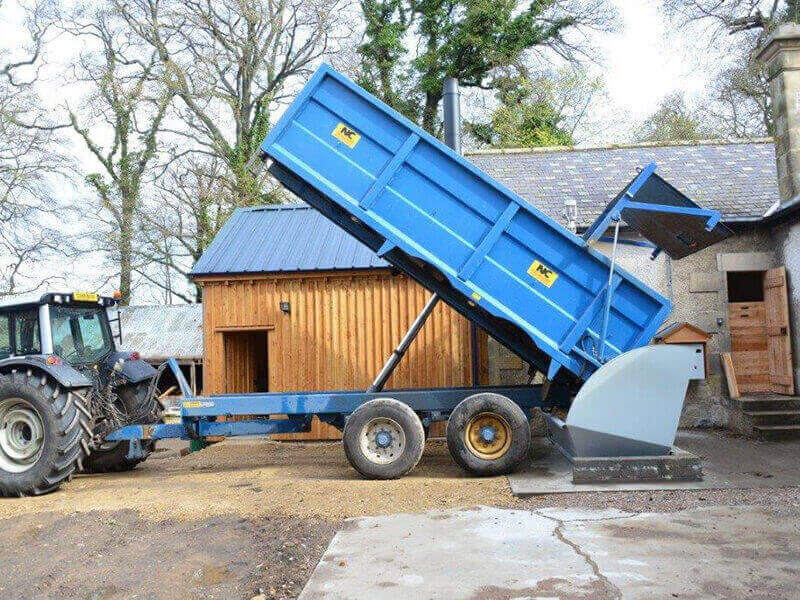195kW Woodchip District Heating System
Innes House is a large private house in the north of Scotland used for weddings and corporate entertainment. The ever-rising cost of oil heating and a wish to maximise estate self-sufficiency drove the decision to invest in a biomass heating system.
The boiler and associated plant was installed in an extension to the stable block with a redundant storage room converted into a chip hopper. Dunster worked with the estate to design a system that minimised the impact on the listed buildings whilst ensuring maximum flexibility in fuel supply. Due to their proximity, it was decided to include three flats to provide lower-cost heating to the tenants.
Fuel Supply and Chip Handling
The first year’s supply of fuel was bought as bulk seasoned timber and chipped by a contractor into a bulk storage barn. Subsequent year’s supplies are being bought as bulk, freshly cut timber and seasoned on site. As estate woodlands are brought back into active management, these will ultimately be used to supply all the timber required to run the system. Chip is transferred from the bulk store in an agricultural trailer and is tipped into the trough of the ‘fast fill’ system which uses powerful augers and a ‘throw’ mechanism to load it into the fuel store at high level. Although the store holds around 3 weeks’ worth of chip at winter consumption rates, it is found most convenient to transfer about one 20m³ trailer’s worth each week as this fits in neatly with other tasks.
System Design and Installation
As the 280kW peak heat requirement of the house and flats significantly exceeds the 195kW capacity of the system, the main house boilers have been retained to provide peak-load capacity. Should demand exceed capacity, the oil boilers will fire up to ensure sufficient heat supply to all properties. Dunster’s system design forecast that biomass would supply 90% of the heat requirement with the balance of 10% being delivered by oil. However, that by adjusting the way the house is heated to prevent spikes in demand, initial indications suggest that the oil boilers are not being used at all.
Benefits
In addition to dramatically reducing the heating bills, the project has been the catalyst for regenerating forestry capacity on the estate.
January 2013
Supply of hot water and heating to a Scottish Mansion House and three flats (Innes House)
195kW ETA Hack woodchip boiler with a 5,000-litre accumulator tank and a 5.5m diameter agitator and auger fuel feed system. Properties are connected via a 230m network of district heating.
The boiler is expected to use approximately 130 tonnes of G50 wood chip per year to produce around 340,000kWh of heat.
A redundant Dutch barn on the estate was renovated to provide storage for a year’s supply of woodchip, as well as space for chipping operations and bulk timber storage. Chips are transferred to the boiler in an agricultural trailer as required.
The system was funded by the estate and is RHI accredited.
Prior to the installation, the house was spending over £20k per annum on oil. The cost of purchasing and chipping the first year’s biomass supply was less than £7k which is expected to fall as more ‘home produced’ timber is used. Combined with annual RHI income of c. £22k, the investment will be paid off in under 5 years.
Estimated at 120 tonnes per annum.
Our 90kw ETA Hack wood chip boiler suffered water damage in late 2014. Dunster Biomass Heating was the only company that could fix the issues without costing me new components. What we have learned is simple. Experience is key! When there is an unusual problem you need more than a guy with a manual – you need a company with the expertise, ability and willingness to solve the problem!


